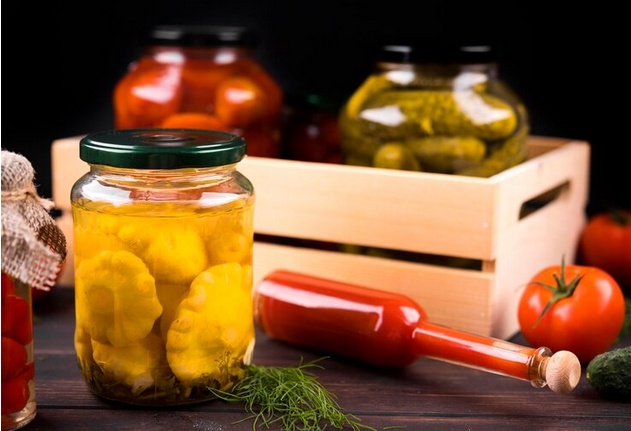Introduction:
In today's food industry, there is a growing awareness of the importance of natural and organic ingredients, including preservatives. As consumers become more conscious of what they eat, there is a renewed interest in organic preservatives for their potential health benefits and minimal environmental impact. This article delves into the concept of going back to basics by exploring the benefits of organic preservatives, their applications in food preservation, and their significance in promoting healthier and more sustainable food systems.
Section 1: Understanding Organic Preservatives
1.1 Definition and Purpose of Preservatives
Preservatives are substances added to food to prevent spoilage, extend shelf life, and maintain quality and safety. Organic preservatives are derived from natural sources and undergo minimal processing, making them preferable to synthetic additives for health-conscious consumers.
1.2 Types of Organic Preservatives
Organic preservatives encompass a diverse range of compounds, including plant extracts, essential oils, natural acids, and fermentation by-products. These substances exhibit antimicrobial, antioxidant, and anti-fungal properties, effectively inhibiting the growth of harmful microorganisms and delaying food deterioration.
1.3 Regulatory Considerations and Certification
The use of organic preservatives is regulated by food safety authorities to ensure their safety and efficacy. Certification by organic standards organizations verifies that these preservatives are sourced from organic ingredients and comply with stringent quality standards, providing assurance to consumers seeking organic products.
Section 2: Health Benefits of Organic Preservatives
2.1 Reduced Exposure to Synthetic Chemicals
Unlike synthetic preservatives such as artificial colors, flavors, and preservatives, organic preservatives are free from synthetic chemicals and additives that may pose health risks. By opting for organic alternatives, consumers can minimize their exposure to potentially harmful substances and make healthier dietary choices.
2.2 Preservation of Nutritional Value
Organic preservatives help maintain the nutritional integrity of foods by preserving essential vitamins, minerals, and antioxidants. By preventing oxidation and enzymatic degradation, these preservatives ensure that foods retain their nutritional value throughout storage and consumption, promoting overall health and wellness.
2.3 Gut Health and Digestive Wellness
Certain organic preservatives, such as probiotics and fermentation by-products, contribute to gut health by supporting the growth of beneficial gut bacteria and promoting digestive function. By fostering a balanced gut microbiome, organic preservatives may enhance nutrient absorption, improve immune function, and reduce the risk of gastrointestinal disorders.
Section 3: Applications of Organic Preservatives
3.1 Food Preservation and Shelf Life Extension
Organic preservatives play a crucial role in extending the shelf life of perishable foods, including fresh produce, dairy products, meats, and baked goods. By inhibiting microbial growth and enzymatic activity, these preservatives help prevent spoilage, maintain product freshness, and reduce food waste throughout the supply chain.
3.2 Clean Label Formulations and Consumer Preferences
The clean label movement, driven by consumer demand for natural and transparent food products, has spurred the use of organic preservatives in clean label formulations. Manufacturers are increasingly replacing synthetic additives with organic alternatives to meet consumer preferences for simpler, cleaner ingredient lists and healthier food choices.
3.3 Functional Foods and Health-Enhancing Properties
Organic preservatives are incorporated into functional foods and dietary supplements to impart health-enhancing properties, such as immune support, antioxidant protection, and digestive health benefits. These value-added products appeal to health-conscious consumers seeking convenient and nutritious options to support their well-being.
Section 4: Environmental Sustainability and Ethical Considerations
4.1 Ecological Impact and Sustainable Agriculture
The production and use of organic preservatives promote environmentally sustainable practices, such as organic farming, crop rotation, and biodiversity conservation. By reducing reliance on synthetic chemicals and minimizing chemical runoff and soil erosion, organic agriculture helps preserve natural ecosystems and mitigate environmental degradation.
4.2 Ethical Sourcing and Fair Trade Practices
Organic preservatives sourced from ethically and sustainably managed farms and cooperatives uphold principles of fair trade, social responsibility, and community empowerment. By supporting small-scale farmers and indigenous communities, consumers contribute to equitable economic development, cultural preservation, and rural livelihoods.
Conclusion:
In conclusion, embracing organic preservatives represents a return to basics in food preservation and a step forward in promoting healthier and more sustainable food systems. The benefits of organic preservative extend beyond mere shelf life extension to encompass improved nutritional quality, digestive wellness, and environmental sustainability. By choosing organic products and supporting ethical and sustainable practices, consumers can make a positive impact on their health, the environment, and the well-being of future generations.


No comments yet